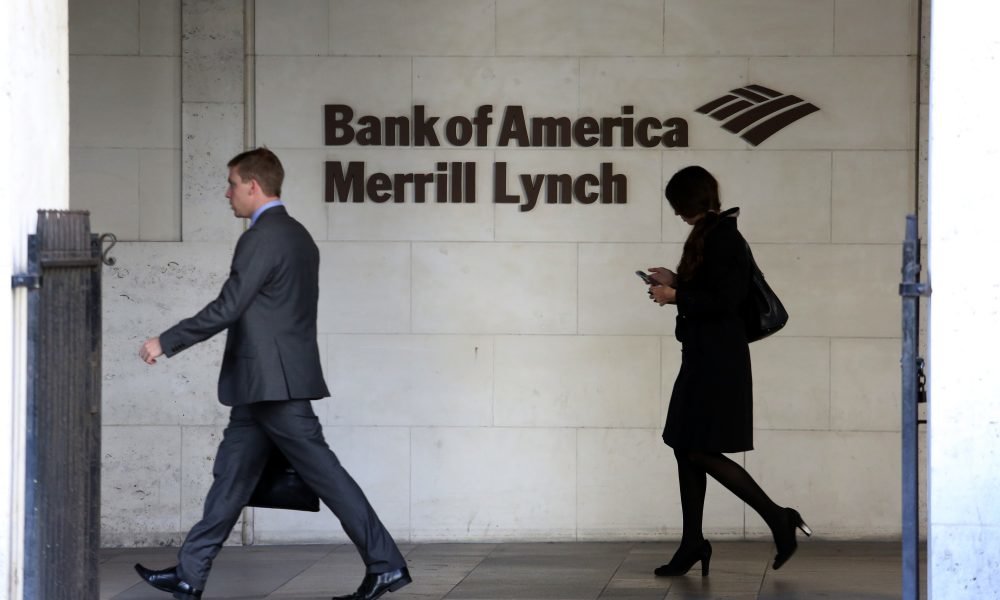
Bank of America Issues an Order Restricting Penny Stocks Purchase

Last Friday, the Bank of America issued a purchase ban and restriction order on penny stocks. The bank implemented such policy changes to protect their clients from taking shady transactions in risky assets and unknown companies.
The Policy Change

Prior to the said restriction, the Bank of America issued a purchase ban on penny stocks since late July.
The spokesman Jerry Dubrowski said they changed their policy regarding low-priced security to ensure Bank of America doesn’t only protect their client’s interests, but also to ensure the bank complies to the Securities and Exchange Commission (SEC) regulations.
Dubdrowski adds the bank is considering limiting the over-the-counter trading for low-priced securities, or those companies amounting below $5 per share, as well as those companies with limited to no financial disclosure information available.
Six weeks after they issued the ban, the Bank of America also told their clients they would restrict the sales of risky securities. The bank also amended their policy to give customers the time to exit their positions or pull out their investment portfolios.
On Risky Trades
Along with other big financial firms, the Bank of America decided to pull back their clients on purchasing penny stocks. Meanwhile, other companies like Morgan Stanley and UBS have reviewed the penny stocks trading process to determine the risks of such trades, especially to those people with knowledge of these firms’ policies. According to the CNBC, the trades in over-the-counter securities suffered a decline in their reputation after fraudulent schemes used the medium for decades to make shady transactions.

Most over-the-counter securities have flaws especially on the lack of disclosure requirements, which makes it an attracting tool to be used for fraudulent schemes.
Most of the times, the brokerages and traders buy the stocks from these dormant shell companies. Then, they intentionally spread false information about the companies’ products to hype the stocks and make quick money by enticing customers into investing in the promises of high potential returns before exiting their positions.
Jay Clayton, the U.S. SEC Chairman expressed his shock and disbelief at the high amount of fraud scheme reports pertaining to penny stocks during the first year of managing the agency. He makes it his mission today to increase their scrutiny when it comes to trading in penny stocks.
Tightening the Security
This isn’t the first time the Bank of America issued a purchase or restricting ban against fraudulent schemes. Last February, the bank also restricted their client from using their credit cards to purchase bitcoin, litecoin, and other cryptocurrencies.
According to the bank, investing in cryptocurrency is highly volatile and risky due to its unpredictable performance. Moreover, it’s unregulated and decentralized, making it difficult for investors to protect their investments from frauds and scams. Moreover, there’s no stability in investing in bitcoins and other cryptocurrencies according to some financial experts. According to one Merrill Lynch broker, they were told to get rid of over-the-counter penny stocks trading by their deadline date.

The said shift around Bank of America’s penny stocks policy created a huge confusion over the firms’ 17,442 financial advisers
He called his client about the company’s decision, but his client doesn’t want to do that. The compliance told him his client didn’t have to sell, but it would be hard to get rid of penny stocks investments down the road.
After banning the sale on most penny stocks, the Bank of America put the policy under the review to give the customers time to sell their stocks for the time being. Only the riskiest penny stocks (usually labeled with a skull and crossbones icon) identified by OTC Markets Group can no longer be sold. However, the firm warns that all penny stocks that met the requirements of the restriction have to be sold off, eventually.
More in Finance & Business
-
`
What Is DRI in Real Estate?
What is DRI in real estate? Understanding DRI in real estate is crucial when dealing with large-scale developments. DRI, or Developments...
August 31, 2024 -
`
What Is an Irrigation Bill and Why Do You Need to Pay It?
If you’ve recently received an irrigation bill and are wondering, “What is an irrigation bill?” you’re not alone. These bills might...
August 23, 2024 -
`
What Happens When a Landlord Refuses Rent? Legal Rights and Options
Landlord troubles? Are rent checks bouncing back like a bad penny? Fear not, tenant. This guide is your lifeline through the...
August 17, 2024 -
`
Bank Statement Mortgage Loan: What Is It and Who Should Get One?
If you are wondering, what is a bank statement mortgage loan, you are not alone. This type of loan is a...
August 7, 2024 -
`
Are Sabrina Carpenter and Olivia Rodrigo Friends?
The question on many fans’ minds is, “Are Sabrina Carpenter and Olivia Rodrigo friends?” This curiosity stems from the buzz around...
July 29, 2024 -
`
What Is Provisional Credit and How It Works for You
Have you ever noticed an unexpected credit in your bank account labeled as provisional? It can feel like a financial windfall,...
July 24, 2024 -
`
How Old Do You Have to Be to Rent an Apartment?
Transitioning from living at home to renting your first apartment is a significant step towards independence. But how old do you...
July 20, 2024 -
`
Will Lumber Prices Go Down in 2024? A Market Forecast
The price of lumber has been a source of frustration for many in recent years. From record highs to a period...
July 12, 2024 -
`
Travis Kelce and Taylor Swift All Set to Tie the Knot?
Travis Kelce and Taylor Swift are almost all set to tie the knot! The buzz around their engagement has fans on...
July 1, 2024















You must be logged in to post a comment Login